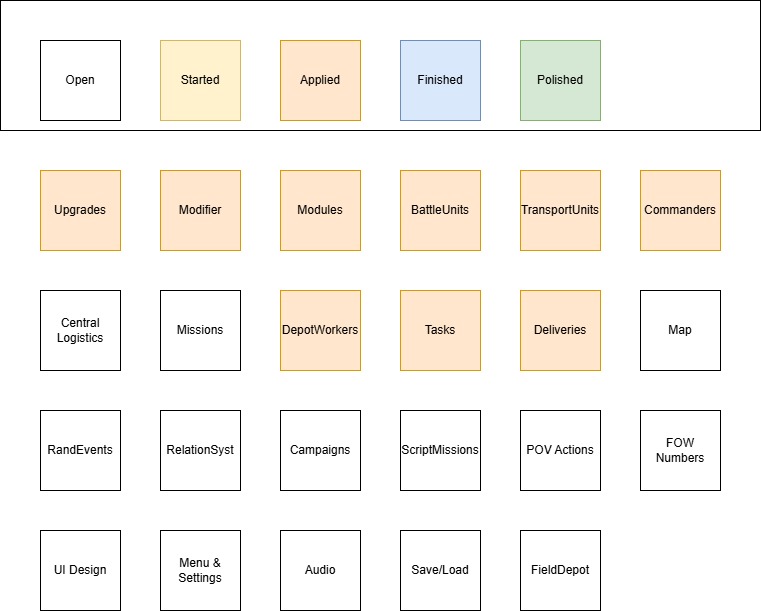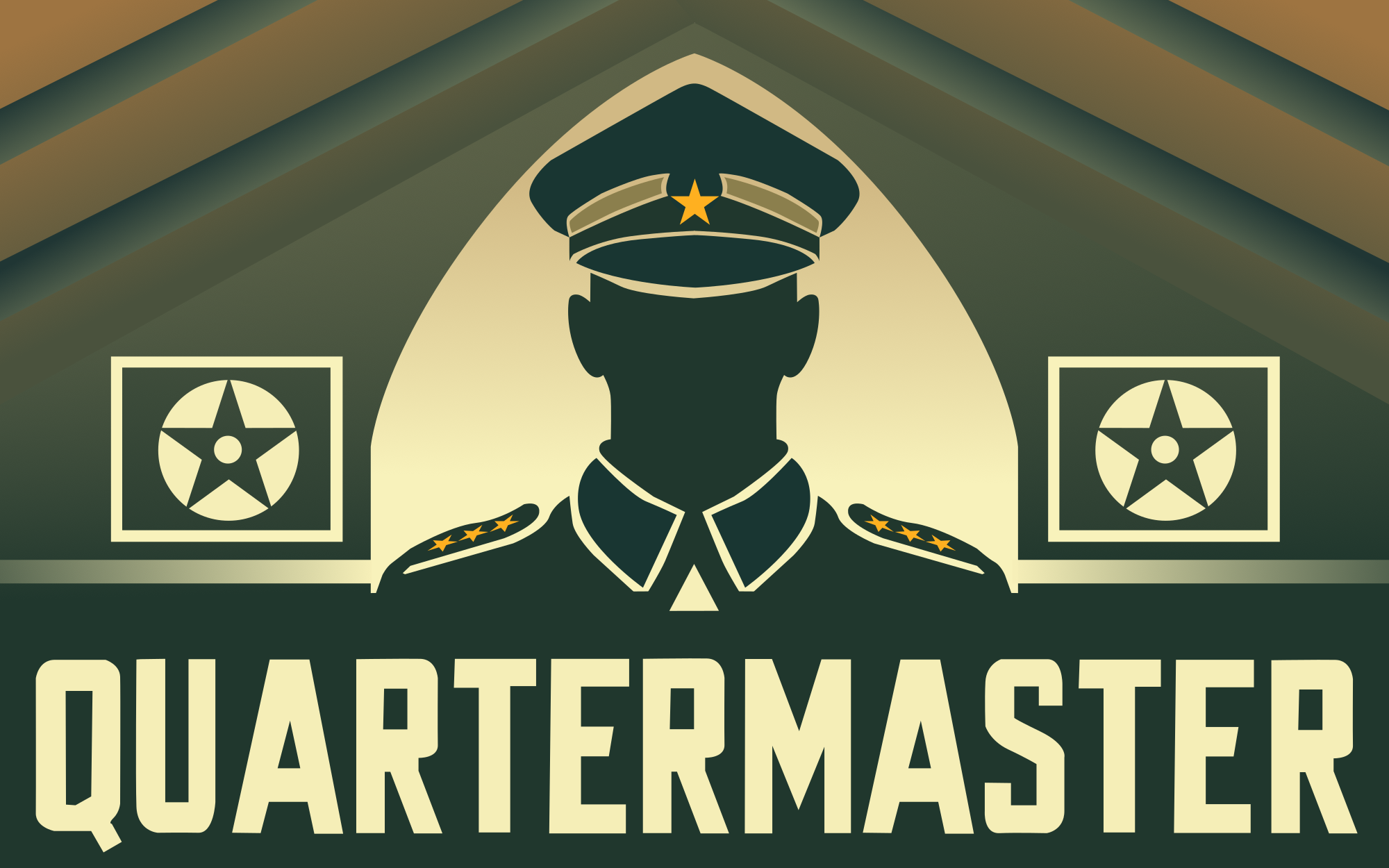Update #25: Commander system implemented
Big milestone today: I completed the implementation of the Commander System, one of the most complex and game-defining mechanics so far.
Commanders are not passive stat boosts, they actively shape gameplay through dynamic influence on battle units, transport logistics, sectors, and event outcomes. They're designed to simulate the human pressure, mood swings, and strategic tendencies of military leadership in wartime conditions.
How it works:
- Each commander is a modular entity with defined personality, behavior patterns, and traits.
-They can be initialized, activated, and removed at runtime.
-Their effects apply across systems: battle units, transport units, locations, and sectors.
-Effects can be conditional, cumulative, or time-based and support stacking or suppression logic.
-All relationships and propagation paths are implemented — changes ripple through the entire game state.
Specialist commanders are high-impact figures that appear throughout the game with unique demands and effects. Unlike standard upgrades or modifiers, they influence multiple systems at once — from unit discipline to resource flow to event likelihood. For example, an Artillery Commander might demand more shells and reduce unit morale if ignored, while a Railway Commander can reroute trains, delaying local logistics. A Medical Officer may override priorities to evacuate the wounded, and a Political Representative can interfere with sector plans entirely. Each specialist introduces trade-offs, forcing players to balance loyalty, logistics, and long-term strategy.
Each commander can have multiple effects. For example, if a commander gets "angry" (state change), it may:
-Lower discipline in battle units,
-Increase logistical delays,
-Shift event probabilities toward punishment-related events.
That’s a major difference compared to simpler systems like Upgrades or Modifiers, which mostly target a single unit type or stat. Commanders, by contrast, have interconnected influence — and building the logic to support that was a challenge.
What’s done:
-Core commander logic and lifecycle (initalizing, apply, remove)
-Cross-system effect handling (battle, transport, sector, location)
-Snapshot and rollback logic
-Support for conditional and state-based behavior
Not all commanders are implemented yet, but the system is fully functional and scalable. One of the biggest logic chunks in the game - done.
Pretty proud of this one.
Also, for those curious an image to visualize where we are in the development and how close to being finished we are:

WW1 Logistics Game - Quartermaster: The Forgotten Front
A real-time World War I logistics game where you navigating supply chains, strategy, and unpredictable events.
| Status | In development |
| Author | FeysStudio |
| Genre | Strategy |
| Tags | World War I |
More posts
- Filed in Duty - Report to the Archives, No.251 days ago
- Update #27: Refactoring the Codebase53 days ago
- Update #26: Created a Patreon & Optimized code base91 days ago
- Update #24: Upgrade system finishedJun 12, 2025
- Update #23: Quartermaster WW1 Logistics Game - Tasks and Location Stats finishedJun 12, 2025
- Update #22: Depot Worker Tasks Logic finishedJun 11, 2025
- Update #21 - Major Milestone AchievedJun 10, 2025
- Update #20: Major Blunder in my Code Base and ConceptJun 01, 2025
- Update #19: Implemented Depot Worker StatesMar 22, 2025

Leave a comment
Log in with itch.io to leave a comment.